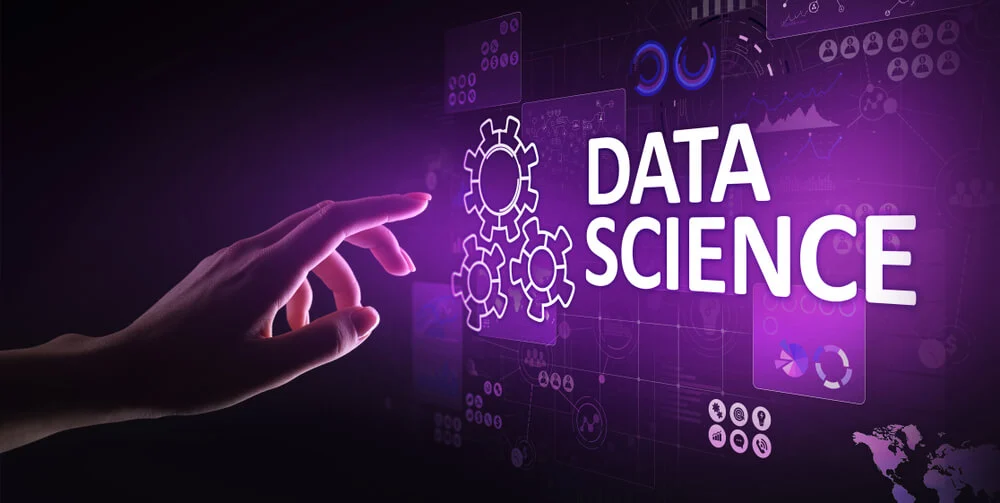The fields of data science and computer science are among the most lucrative and rapidly evolving career paths in the United States. Both disciplines are integral to the tech-driven world we live in, but they offer distinct roles, responsibilities, and salary prospects.
This article explores the differences between data science vs computer science degrees along with study cost and focusing on who earns more in the USA.
Overview of Data Science vs Computer Science Degree Programs
Data Science Degree
Focuses on extracting insights from large datasets by combining disciplines like statistics, mathematics, and computer science. It is an interdisciplinary field that prepares students to handle data at scale, perform complex analyses, and derive actionable insights. Data science and statistics are often differentiated by their scope and application. While statistics focuses on the theory and methods of data analysis, data science encompasses a broader range of skills, , including data engineering, machine learning, and data visualization. Moreover, data science being a base for artificial intelligence, adds to its scope.

Computer Science Degree:
Concentrates on the theory and development of software and hardware systems. This field emphasizes understanding the fundamentals of computing, algorithms, and programming languages, preparing students for roles in software development, systems engineering, and more.
Core Curriculum
Data Science Curriculum:
- Statistics and Probability: Fundamental for data analysis.
- Machine Learning: Techniques for building predictive models.
- Data Mining: Discovering patterns in large datasets.
- Data Visualization: Tools and techniques to represent data graphically.
- Big Data Technologies: Hadoop, Spark for managing large datasets.
Computer Science Curriculum:
- Algorithms and Data Structures: Core principles for efficient programming.
- Programming Languages: Java, C++, Python.
- Software Engineering: Principles of designing, developing, and maintaining software.
- Operating Systems: Understanding of OS design and functionality.
- Computer Networks: Concepts of data communication and networking.
Skill Development
Data Science Skills:
- Analytical Skills: Ability to interpret complex data.
- Statistical Analysis: Using statistical methods to analyze data.
- Programming: Proficiency in Python, R, SQL.
- Data Wrangling: Cleaning and preparing data for analysis.
- Machine Learning: Implementing and fine-tuning ML models.
Computer Science Skills:
- Problem-Solving: Logical thinking to solve computational problems.
- Programming: Writing efficient and effective code in multiple languages.
- Software Development: Building and testing software applications.
- Systems Thinking: Understanding how different components of a system interact.
- Theoretical Knowledge: Strong foundation in computational theory and principles.

Career Paths: Data Science vs Computer Science
Data Science Graduates:
- Data Analyst: Analyzing data to help companies make informed decisions.
- Data Scientist: Creating models to predict trends and patterns.
- Machine Learning Engineer: Designing algorithms that enable machines to learn.
- Business Intelligence Analyst: Using data to inform business strategy.
- Quantitative Analyst: Applying mathematical models to financial data.
Computer Science Graduates:
- Software Developer: Designing and developing software applications.
- Systems Analyst: Improving and managing IT systems.
- Computer Programmer: Writing and testing code for new programs.
- Network Architect: Designing and building communication networks.
- Cybersecurity Analyst: Protecting systems from cyber threats.
Industry Applications: Data Science vs Computer Science
Data Science:
- Finance: Risk management, fraud detection, algorithmic trading.
- Healthcare: Predictive analytics, patient data management.
- Marketing: Customer segmentation, sentiment analysis.
- Technology: Personalization engines, recommendation systems.
- Retail: Inventory optimization, sales forecasting.
Computer Science:
- Software Development: Creating applications for various platforms.
- Cybersecurity: Protecting data and systems from breaches.
- Artificial Intelligence: Developing intelligent systems and robots.
- Game Development: Designing and programming video games.
- Hardware Engineering: Designing computer hardware components.
Cost Comparison: Data Science vs Computer Science Degrees
The cost of obtaining a degree in data science or computer science can vary significantly based on the institution, location, and program duration. Generally, computer science degrees tend to be slightly less expensive than data science degrees. According to data from the College Board, the average annual tuition for in-state students at public four-year institutions is about $10,000, while private universities charge an average of $38,000 per year. Data science programs, often housed within advanced technology or business schools, may have higher tuition rates due to their interdisciplinary nature and the demand for cutting-edge courses and faculty expertise. Some top-tier universities with specialized data science programs, such as Stanford or MIT, have tuition fees exceeding $50,000 per year. Additionally, the cost of living in tech hubs where these programs are located, such as San Francisco or Boston, can further increase the overall expense. Therefore, while both degrees are costly, data science programs are typically at the higher end of the spectrum.

Salary Comparison: Data Science vs Computer Science
Both data science and computer science professionals command high salaries, but there are nuances based on experience, industry, and location.
Data Science Salaries
According to Indeed, the average annual salary for a data scientist in the USA is $123,039. Entry-level data scientists can expect to earn about $78,122 per year, while those with significant experience and expertise can earn up to $193,783 per year. The industry also plays a significant role in salary variations. For instance, data scientists at Google earn approximately $151,134 annually, while those at Amazon make about $146,697 per year. At Apple, data scientists earn an impressive $170,045 annually.
Computer Science Salaries
According to Glassdoor, computer scientists have an average annual salary of approximately $110,000. Entry-level positions start at around $70,000 per year, while senior roles can reach up to $200,000 annually. Salaries vary significantly across different sectors, with professionals in software publishing earning around $142,000 per year and those in the finance sector earning about $122,000 per year.
Factors Influencing Salaries
Several factors influence the salaries of data science and computer science professionals, including experience, industry, and location.
Experience
Experience is a critical factor in determining salary. Entry-level data scientists and computer scientists have lower starting salaries compared to their senior counterparts. For instance, senior data scientists can earn up to $190,000, while senior computer scientists can earn up to $200,000 annually.
Industry
The industry in which professionals work also impacts their salaries. Data scientists in finance and tech industries generally earn more than those in healthcare or education. Similarly, computer scientists in software publishing or tech companies tend to have higher salaries than those in government or nonprofit sectors.
Location
Geographical location is another significant factor. Professionals in tech hubs like San Francisco or New York typically earn more due to the higher cost of living and the concentration of tech companies. Data scientists in San Francisco earn an average of $147,000 per year, while those in New York earn around $126,000. For computer scientists, the average salary in San Francisco is about $139,000, compared to $129,000 in Seattle.
Why Do Data Scientists Often Earn More?
Data scientists often earn more than computer scientists due to several reasons:
- Specialized Skills: Data scientists possess specialized skills in machine learning, statistics, and big data, which are in high demand.
- Business Impact: The insights generated by data scientists directly impact business decisions and strategies, leading to significant business value.
- Talent Shortage: There is a shortage of qualified data scientists, driving up salaries as companies compete for top talent.
- Industry Demand: Sectors like finance, healthcare, and tech heavily rely on data-driven insights, further increasing the demand and salaries for data scientists.
Top Employers in the USA: Data Science vs Computer Science
Top Employers for Data Scientists
- Google: Innovates using data science for search algorithms and advertising platforms.
- Amazon: Uses data science for recommendations, supply chain optimization, and customer analytics.
- Facebook: Leverages data science to analyze user behavior and improve ad targeting.
- Microsoft: Applies data science across products like Azure and Office 365.
Top Employers for Computer Scientists
- Apple: Focuses on hardware and software innovation.
- IBM: Pioneers in AI, cloud computing, and data analytics.
- Oracle: Specializes in database management systems and enterprise software.
- Intel: Leads in semiconductor manufacturing and computing technologies.
Tips for Excelling in Data Science and Computer Science Careers
- Continuous Learning: Stay updated with the latest tools, techniques, and trends.
- Hands-on Experience: Work on real-world projects and participate in hackathons.
- Networking: Connect with professionals, attend industry events, and join forums.
- Communication Skills: Develop the ability to explain complex concepts to non-technical stakeholders.
- Problem-Solving Abilities: Tackle challenging problems with analytical and creative thinking.
- Adaptability: Be open to learning new technologies and adapting to industry changes.
- Soft Skills: Cultivate teamwork, leadership, and time management skills to excel in diverse work environments.
Conclusion
In the debate of data science vs computer science, both fields offer lucrative and fulfilling career opportunities. Data scientists generally have higher earning potential due to specialized skills and high demand. However, computer scientists also enjoy substantial salaries, especially in tech-centric roles. Ultimately, the choice between data science and computer science should align with your interests, strengths, and career aspirations. By understanding the distinctions and leveraging the earning potential, you can build a successful career in either field.



